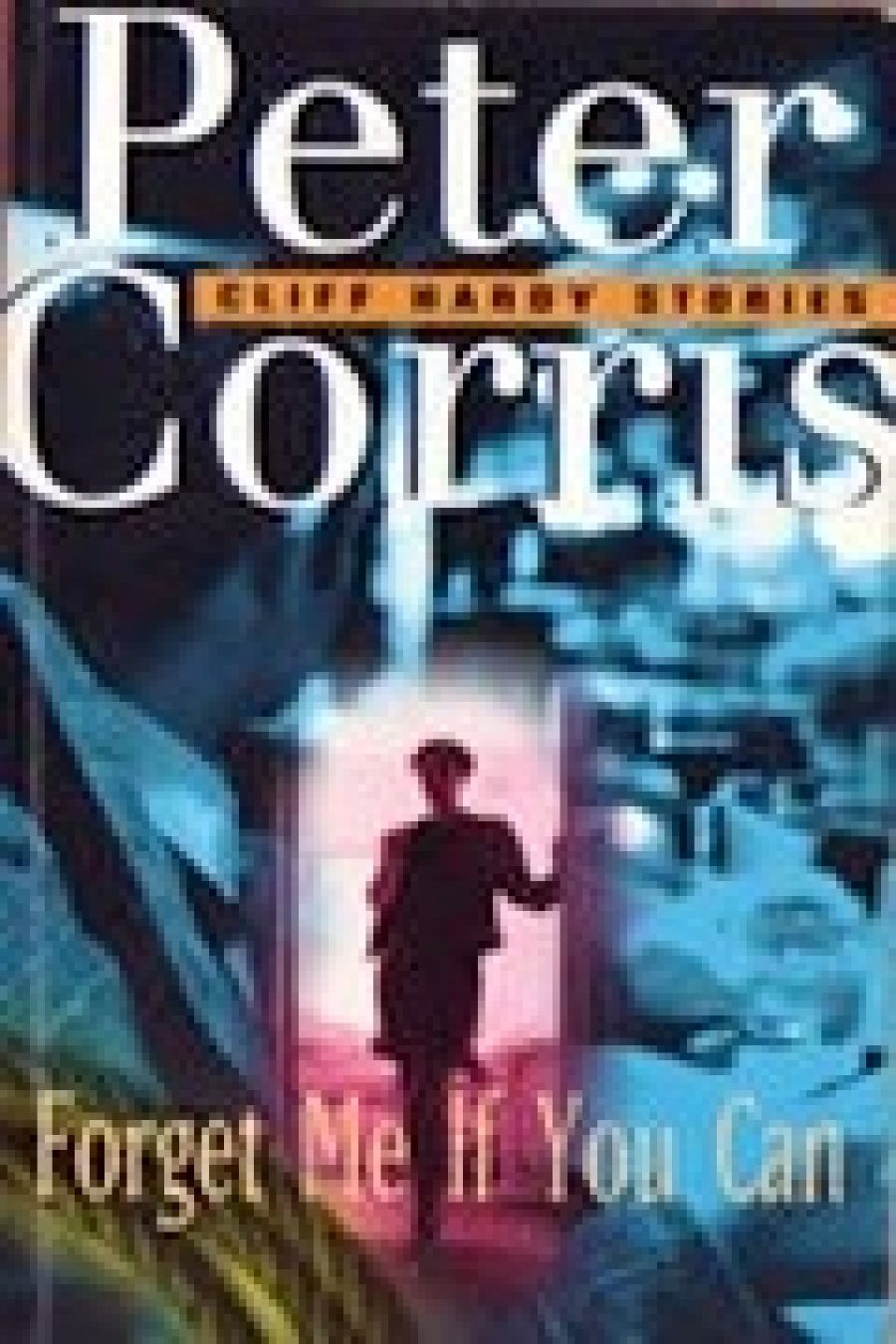
- Free Article: No
- Contents Category: Fiction
- Review Article: Yes
- Article Title: Criminal Quirks
- Online Only: No
- Custom Highlight Text:
Just in case anyone hasn’t head of Cliff Hardy, Peter Corris leads off his new collection of short stories featuring the Sydney private eyes, Forget Me If You Can, with ‘The Hearing’ – an informative little piece in which Hardy, his license suspended, undergoes an interview with a ‘psycho-sociological profiler’ to see if he is a fit and proper person to carry on snooping. In compressed form Corris gives us the essential Hardy: aggressive, cynical, hard-bitten, rude or charming (depending), middle aged, battle-scarred, divorced, ex-smoker, drinks too much, as honest as the job allows. You get a good sense of the man’s strengths and weaknesses, most of which are expanded on in the dozen stories that follow.
- Book 1 Title: Forget Me If You Can
- Book 1 Biblio: Bantam $14.95pb, 255pp,
- Book 2 Title: The Dark Edge
- Book 2 Biblio: Pan $14.95pb, 563pp,
- Book 2 Cover Small (400 x 600):

- Book 2 Cover (800 x 1200):

A number of these stories have appeared before, but no matter: reading about Cliff’s exploits is always time well spent, even second time around. Besides, he’s done so much over the years, who can remember? The thing about Hardy is, he’s entertaining and instructive. He usually encounters some quirk of humanity in his cases, dealing as he does with unusual, often pathological and invariably desperate, individuals. Take for instance, ‘TV’, and the title does not refer to the box in the corner. In this story, Hardy is hired by a transvestite to deal with a balaclava-clad biker who is giving him/her flak. Hardy is a bit out of his depth, and his insecurity shows. There’s also a nifty little twist in the last few lines: Corris’s ironic edge is never far away.
Concealment and the past revisited rare intertwined themes throughout this collection. For instance, in ‘Close Enough’, Hardy is hired by a man who suspects he is not the real father of his grown-up son. ‘Families are hell’, the reluctant gumshoe accurately observes as he explores a lifelong friendship between two old mates, and links between the two families stretching way back. In this neatly-constructed conundrum Hardy has to negotiate the sensitive terrain of long-held family secrets, the unlocking of which isn’t going to please his client.
Corris certainly has the knack of touching raw nerves, whether he is writing about a whistle-blowing cop, corruption in the racing industry, the fight game, teenage runaways or even buried treasure on Fraser Island. We don’t see that much of the Cliff Hardy these days, but it’s reassuring to know that he’s still out there and hasn’t lost his bottle.
A horse of a completely different colour is Richard Harland’s science fiction thriller The Dark Edge. I have to admit that my grasp of this genre is limited to the likes of Huxley, John Wyndham, Vonnegut, Philip K. Dick, E.E. ‘Doc’ Smith, and Ray Bradbury – all no doubt boringly mainstream and passé. Today’s cutting-edge, ‘out there’ school has a fiercely dedicated following, but Harland’s book is fortunately not too mindbending. The Dark Edge is an inter-galactic thriller set in a cosmos far, far away, on a planet called P-19. Two cops – Inspector Eddon Brae and his female ‘parapsych’ assistant, Vailer Vessintor, arrive from Hegemony Central Police (Earth, I believe) to investigate some serial killings. P-19 used to be a colony of Hegemony, and it seems there’s still plenty of bad blood in the air. It isn’t long before the visitors realise they’ve been tricked by the locals, for reasons that Vail tries to intuit using her psychic skills.
One of the strands in this book is the running battle between Brae, a hard-nosed realist, and Vessintor, a cat-like, slinky creature whose special powers don’t cut much ice with her boss – at first. Then there is the matter of Unresolved Sexual Tension, à la X-Files: will they or won’t they? But before we find out, there’s a heap of crime-solving to be done: not one serial killer, but a rapidly increasing number are on the loose, threatening the very existence of P-19. These monsters don’t just kill their victims, they dismember them and rip their organs to shreds. Added to this there are dark rumblings in the sky, strange rain and an atmosphere of heavy portent.
The crux of the problem is an entity called the Antihuman, which is a starless web, a kind of electrical consciousness in space sending destructive signals to the P-19ers, giving them nightmares and turning them into mass-killers. This evil force really has it in for people, and as the odds multiply against them the job of stemming the tide of ultraviolence becomes a losing battle. One man holds the key: the elder statesman, a sort of Alec Guinness type called Argid ev Ghair (why do they have to have such weird names in science fiction?), is carrying a device, an implant put in his brain by the enemy: he is unwittingly responsible for all this carnage, and only he can end it.
The Dark Edge is an odd mixture: the prose level and characterisation tend towards Power Rangers, yet its format and apocalyptic theme suggest something more adult and challenging. It’s a lightweight, entertaining read, but hardly groundbreaking stuff.


Comments powered by CComment